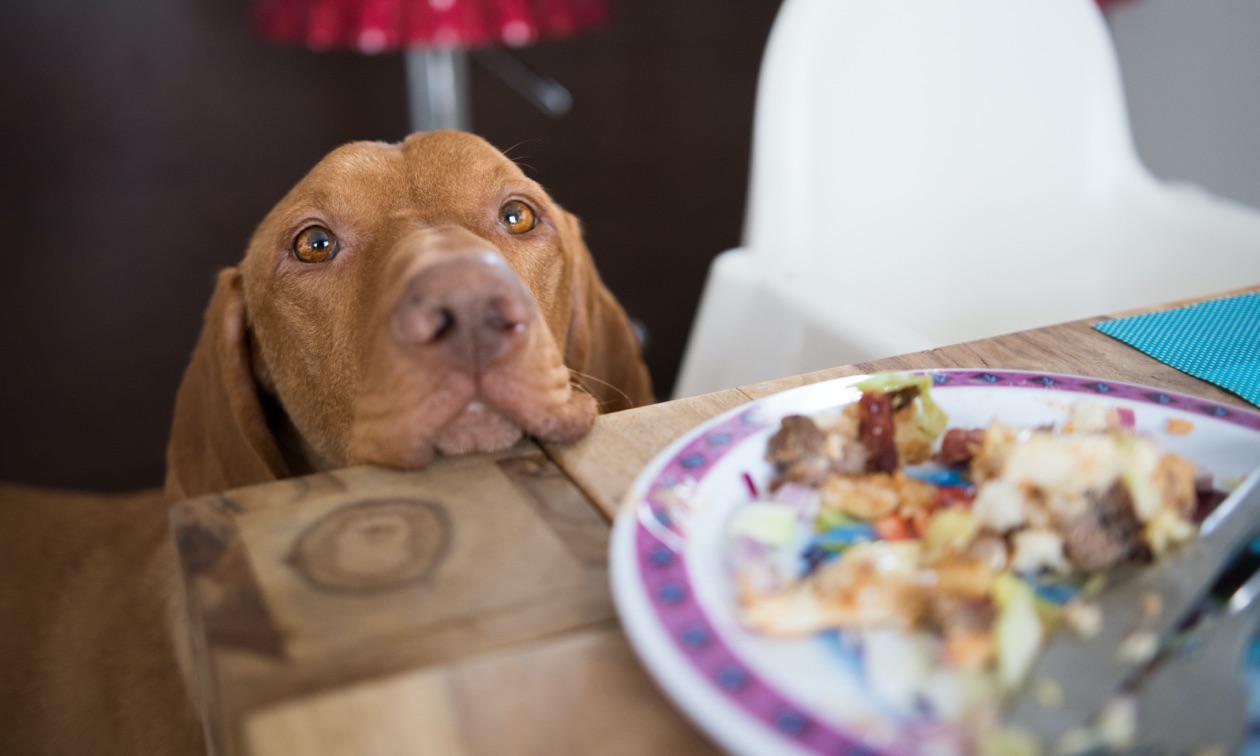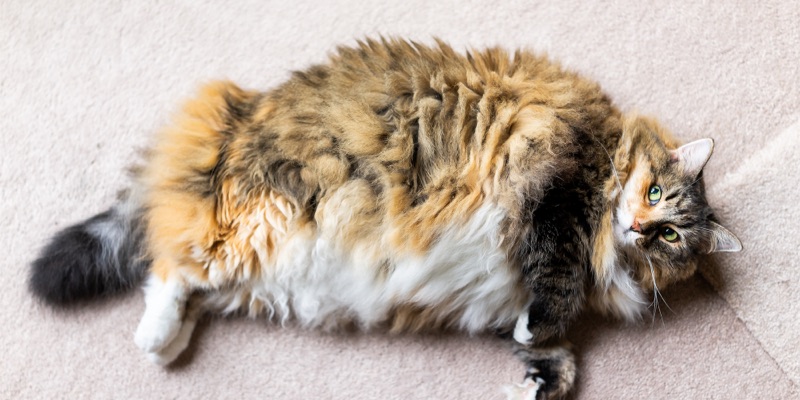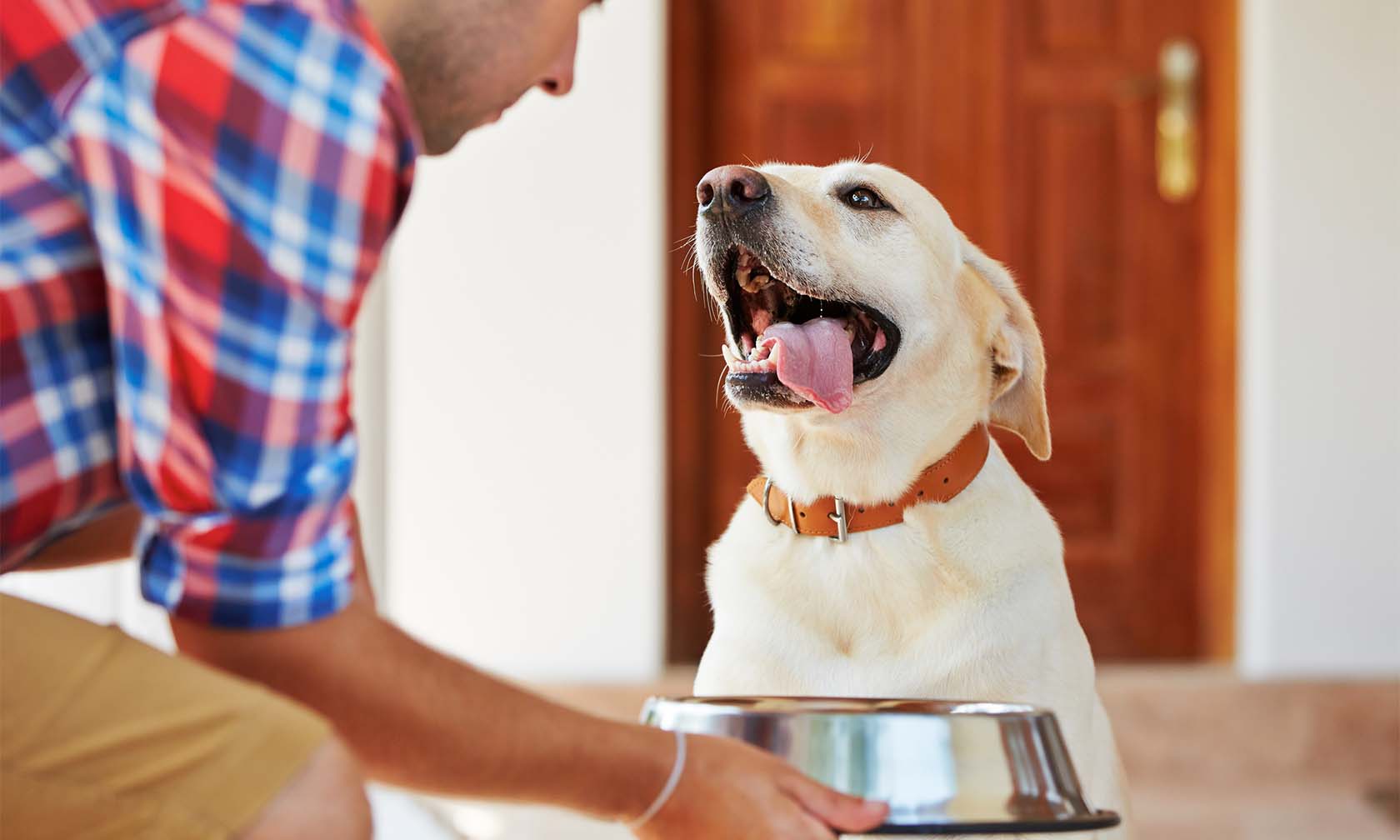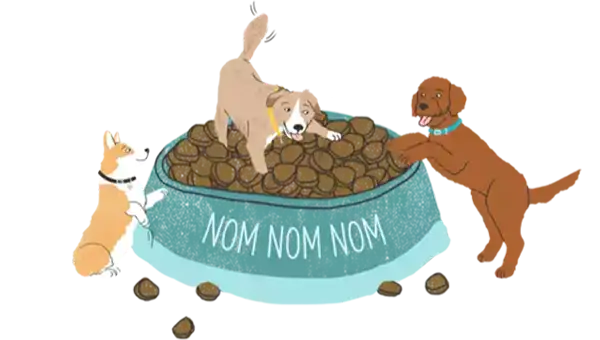You cook a delicious meal and sit down to enjoy it, only to look over and find those big puppy eyes watching you. Dogs begging for food at the table is something most dog owners can relate to. It’s a behavior that many people would like to stop, as it can be disconcerting to have your pup stare at you while you eat. Some dogs are so determined to get some of your food that they jump on you or on the table to make it happen! Thankfully there are some easy steps you can take to minimize this behavior.
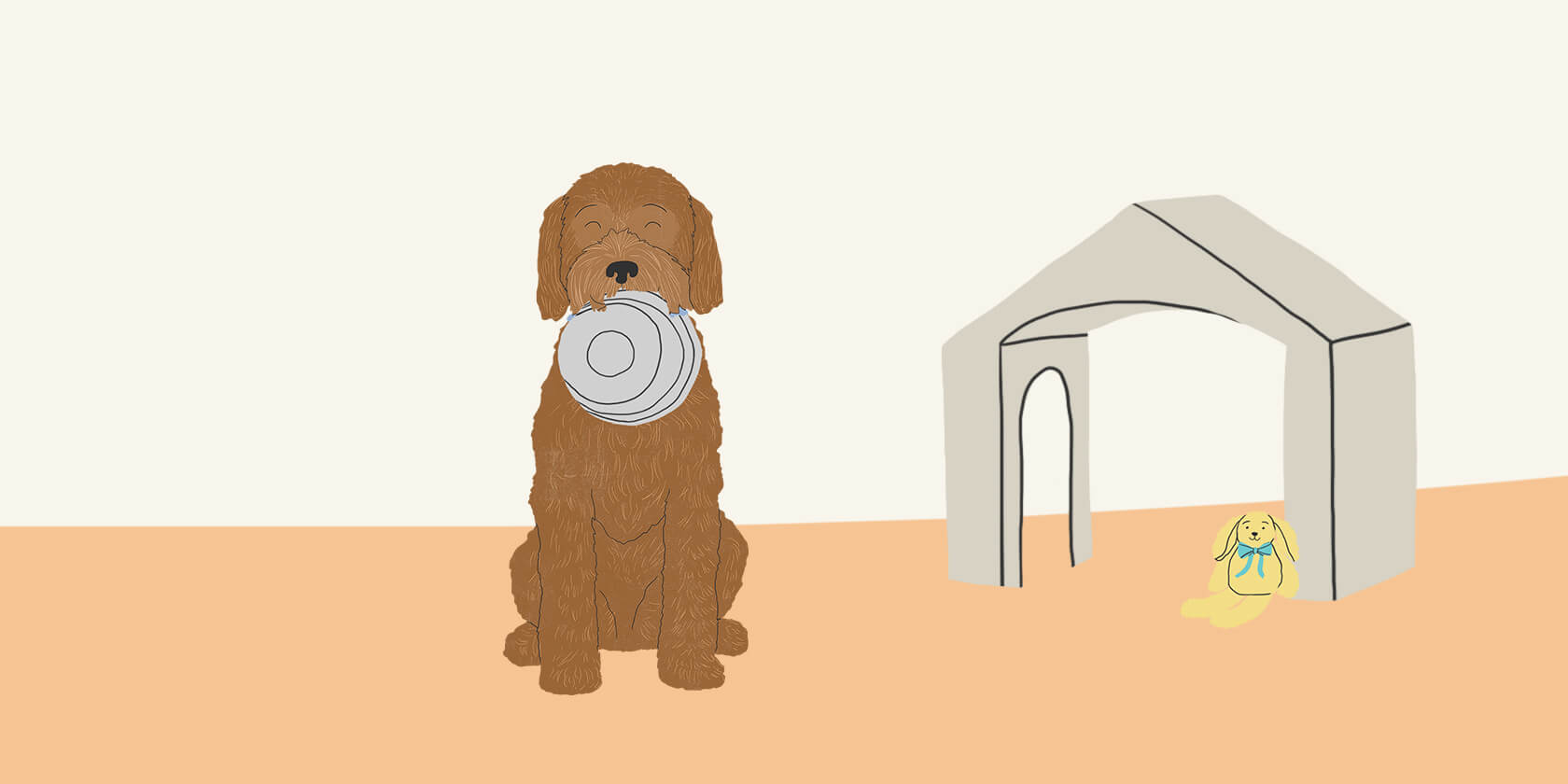
Why Do Dogs Beg for Food?
Simply put, dogs beg for food because they like food. Food smells and tastes good, especially human food that they don’t normally get. Dogs are driven primarily by their sense of smell. Naturally, they want to check out what’s on our plate when it smells like something they should try to get in their mouth.
Dogs need food to survive, and they are hardwired to seek it out. When dogs were becoming domesticated thousands of years ago, it all started with access to food. Hanging out near a human camp and scavenging for tossed out food scraps was much easier (and safer) than hunting prey. Begging worked!
Dogs quickly figured out that if they acted in a way that encouraged interaction between them and people, the more likely they would get thrown a piece of food. Look longingly at a person, and maybe they’ll find you cute enough to toss a piece of meat. Dogs became more trusting of humans because humans meant food. In return, they acted as guard dogs, became working dogs that helped us pull sleds, helped on hunts, and — perhaps most importantly — became our companions.
Nowadays, dogs that live in our homes don’t need to work as hard to scavenge for food. We tend to portion their daily rations into their bowl on a regular schedule. But that instinctual drive to seek food out means that dogs will beg for food.
Some dogs beg very politely, looking longingly up at you from where they sit a few feet away from the table. But others can get a bit pushier, nuzzling our hands or even jumping on the table to try and get something tasty. It’s this more demanding type of begging that most dog owners want help with. It’s all about teaching your dog that obnoxious or nuisance begging doesn’t work and showing them what works instead.
How to Stop Your Dog from Begging for Food
A little cleaning, training, and patience is all you need to teach your dog not to beg for food.
- Manage the environment. During your meals, keep your dog separated by a gate, in their crate, or in their playpen. This prevents them from engaging in rude begging behaviors at the table.
- Keep the table clean. Some determined dogs will try to give your table a once-over to clean up any crumbs left behind when you’re not there. Jumping up on the table when you’re not around to prevent it, and getting some tidbits of food, is incredibly reinforcing for a dog! Make sure to clean your table thoroughly of any crumbs or spills to lessen their interest. Push in chairs or turn them upside down on top of the table to remove easy access for your dog to get up on the table in the first place.
- Ignore your dog. While you’re eating, it’s important to not reinforce the unwanted begging behaviors by giving your dog any attention — or worse — giving them any table scraps! Dogs do what works, and if begging or jumping on the table in the past has meant their people look at them, talk to them, touch them, or give them a bit of food, a dog will keep doing it.
- Feed your dog their meals at the same time you eat. This will be keeping them busy and provide a long-lasting positive reinforcement for hanging out in their space and away from the table. To make their meals last a while, use an interactive stuffed food toy or even a snuffle mat.
- Teach your dog a “go to place” cue. Set out a dog bed or mat at a distance from the table. Practice training your dog to lie down and stay on their designated place while you cook and eat. Keep treats handy so you can intermittently toss one to them throughout the meal, reinforcing that staying in that spot means food rains from the sky. The more a behavior is rewarded, the faster it becomes a habit! If your dog breaks their stay and gets up from their place, simply reset them in the correct position.
Stopping Your Dog from Jumping on the Table
If your dog is engaging in extreme begging and demanding behavior around food, such as jumping up on the table, it’s essential to practice strict management so they don’t continue this behavior.
- Keep them in a separate area during mealtimes or when you’re cooking.
- Give them a work-to-eat puzzle toy to keep them busy and prevent barking or trying to break out of their space.
- Never give these dogs table scraps or human food. It’s especially important to teach any children in your home not to hand dogs food from the table. Guests can also be notorious for sneaking snacks to dogs under the table. Keeping your dog in a separate area altogether during meals is the easiest way to prevent this.
- Focus on teaching them what to do to get treats, such as go to place, sit, down, and stay. Be consistent in your training.
ZPC-01450


